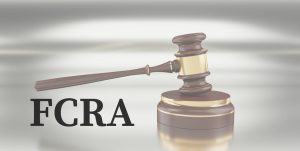Supreme Court (SC) Upheld The Constitutional Validity Of FCRA:

The Supreme Court (SC) upheld the constitutional validity of the Foreign Contribution (Regulation) Amendment Act (FCRA), 2020.
- It held that receiving foreign donations cannot be an absolute right and can be regulated by the Parliament.
- In 2020, the Indian government had proposed amendments to the FCRA, which imposed new restrictions on how Non-Governmental Organisations (NGOs), individuals, and other organisations could receive or use funds contributed from abroad.
Highlights of the Judgements:
- Foreign Contributions serves as a medicine so long as it is consumed (utilised) moderately and discreetly.
- However, free and uncontrolled flow of foreign contribution can act as an intoxicant that has the potential of impacting the sovereignty and integrity of the nation.
- The SC underlined that foreign contributions may tend to influence or impose political ideology.
- Thus, FCRA amendments are essentially conceived in the interest of public order as the intent is to prevent misuse of donations coming from foreign sources.
- Receiving foreign donations cannot be an absolute or even a vested right.
- This is because the theory of possibility of national polity being influenced by foreign contribution is globally recognised.
- In this scenario, it had become necessary for Parliament to step in and provide a stringent regime for effectively regulating the inflow and utilisation of foreign contribution.
Foreign Contribution (Regulation) Act (FCRA), 2010:
- Foreign funding of persons in India is regulated under FCRA act and is implemented by the Ministry of Home Affairs.
- Individuals are permitted to accept foreign contributions without permission of MHA.
- However, the monetary limit for acceptance of such foreign contributions shall be less than Rs. 25,000.
- The Act ensures that the recipients of foreign contributions adhere to the stated purpose for which such contribution has been obtained.
- Under the Act, organisations are required to register themselves every five years.
Amendments done in the Act:
- Prohibition to accept foreign contribution: It bars public servants from receiving foreign contributions.
- It prohibits the transfer of foreign contribution to any other person.
- Aadhaar number is mandatory for all office bearers, directors or key functionaries of a person receiving foreign contribution, as an identification document.
- The foreign contribution must be received only in an account designated by the bank as FCRA account in such branches of the State Bank of India, New Delhi.
- No funds other than the foreign contribution should be received or deposited in this account.
- It allowed the government to restrict usage of unutilised foreign contribution.
- This may be done if, based on an inquiry the government believes that such person has contravened provisions of the FCRA.
- While NGOs earlier could use up to 50% funds for administrative use, the new amendment restricted this use to 20%.




